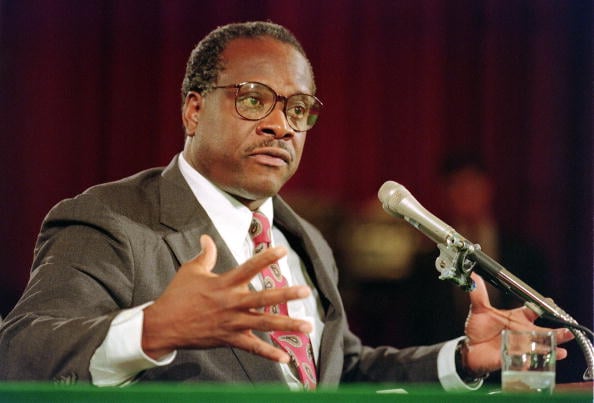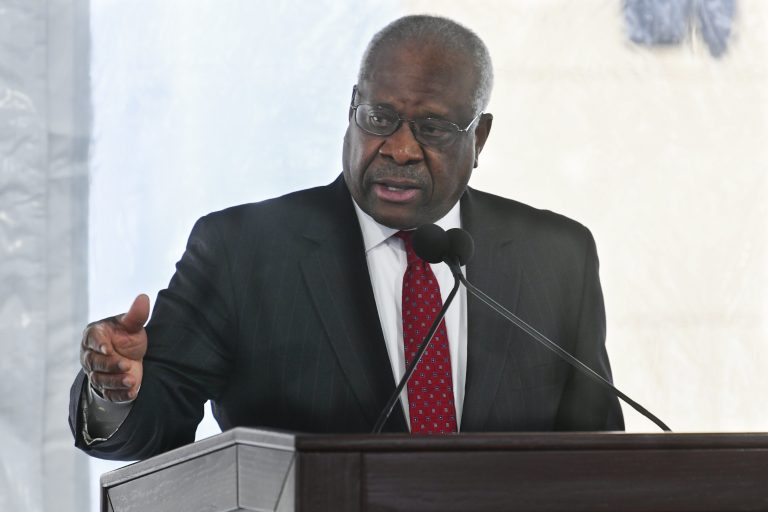Clarence Thomas’ Net Worth, Awards, Endorsements, Achievements, Contracts, Career Life, and Timeline

Clarence Thomas’s journey from rural Georgia to the Supreme Court is one of remarkable achievement and persistent controversy. Let’s explore various aspects of his life within the boundaries you’ve outlined:
Net Worth:
Estimates for Thomas’s net worth range from $20 million to $30 million. This includes his salary as a Supreme Court Justice, his prior government service, and investments.
Awards and Honors:
- Yale Law School’s King Award for excellence in oral advocacy
- Phi Beta Kappa and Omicron Delta Kappa honors
- Also Presidential Medal of Freedom (2023)
- And also Numerous honorary degrees from universities across the country
Endorsements:
Justice Thomas does not publicly endorse commercial products or political candidates. His judicial work speaks for itself, attracting both praise and criticism for its adherence to originalist interpretations of the Constitution.
Achievements:
- Second African American Supreme Court Justice in history
- Longest-serving Black justice on the Court (as of October 2023)
- Also Has cast pivotal votes in landmark cases affecting gun rights, campaign finance, affirmative action, and abortion.
Contracts:
Supreme Court Justices receive lifetime appointments with set salaries. Thomas’s current annual salary is $278,200.
Career Life
Early Legal Steps:
- Missouri Beginnings: After graduating from Yale Law School, Thomas began his legal career in Missouri as an assistant attorney general, honing his skills and developing a conservative outlook.
- Washington Rise: His talent propelled him to Washington, D.C., where he served on the Equal Employment Opportunity Commission and later became the Assistant Secretary of Education for Civil Rights under President Reagan. While a strong advocate for equal opportunity, he opposed affirmative action, setting the stage for future ideological battles.
- Nomination to the Supreme Court: In 1991, President George H.W. Bush nominated Thomas to the Supreme Court, a move intended to diversify the Court and also appeal to Black voters. However, it ignited a firestorm.
- Anita Hill’s Allegations: Accusations of sexual harassment surfaced from Anita Hill, his former employee, also throwing the confirmation process into turmoil. The televised hearings were a national spectacle, raising awareness about sexual harassment but also fueling racial tensions and partisan battles.
- Confirmation Amidst Controversy: Despite fierce opposition and protests, Thomas was narrowly confirmed by the Senate, leaving a deep scar on American politics and forever linking his name to the Hill controversy.
Life on the Court:
- Conservative Crusader: From day one, Thomas became a reliable vote for the Court’s conservative wing. He consistently championed originalism, also interpreting the Constitution as originally understood by the Founding Fathers. His stances on gun rights, affirmative action, and campaign finance reform proved influential, reshaping American law on significant issues.
- Dissenting Voice: Thomas often finds himself in the minority, offering powerful dissents in landmark cases like Roe v. Wade and Obergefell v. Hodges. He also has become a symbol of conservative legal theory, admired by his supporters for his unwavering principles and criticized by his detractors for his perceived rigidity and ideological bias.
Timeline:
- 1968-1971: Yale College
- 1971-1974: Yale Law School
- Also 1974-1979: Missouri Assistant Attorney General
- 1979-1981: Equal Employment Opportunity Commission
- Also in 1982-1986: Assistant Secretary of Education for Civil Rights
- 1991-present: Supreme Court Justice

